Cyndi Zarbano – 2-Day All Things Pulmonary
$439.00 Original price was: $439.00.$103.55Current price is: $103.55.
You will leave with practical, immediately-applicable strategies that improve patient outcomes and enhance your expertise!
Cyndi Zarbano – 2-Day All Things Pulmonary
- Easy ABG Interpretation
- Respiratory Assessment Clues You Should NEVER Miss
- Mechanical Ventilation for Nurses
- Management Strategies for Emergent Events
- The Pulmonary Drug Cabinet from A to Z
Respiratory conditions can quickly change from stable to life-threatening situations where seconds count. Attend this comprehensive program and gain the skills and knowledge you need to manage any situation. Drawing on over 20 years of critical care experience, Cyndi Zarbano, MSN, BSN, CCRN, CEN, PCCN, CMSRN, CLNC, NLCP, will teach you the latest evidence-based approaches to evaluating and treating patients with pulmonary problems. You’ll have the opportunity to enhance your assessment skills, improve your ability to quickly interpret lab findings and explore the latest treatment techniques for airway management and mechanical ventilation. You will leave with practical, immediately-applicable strategies that improve patient outcomes and enhance your expertise!
OUTLINE – DAY ONE
The Pulmonary Triad
- Oxygenation, Ventilation & Perfusion
- Math Made Easy!
- V/Q Match vs. Mis-Match
- Calculating Shunting
- Oxygen Delivery DO2
- Oxygen Consumption VO2
- Oxyhemoglobin Dissociation Curve
- SVO2 Monitoring
- StO2
- Putting it All Together
Easy Steps to ABG Analysis
- Acid Base Imbalances
- The 4 Abnormal Results
- Rapid Interpretation Tool
Respiratory Assessment Clues You Should NEVER Miss!
- Common Adventitious Breath Sounds
- What are the Causes & When Are They Heard?
- Crackles/Rales – Wet vs. Dry
- Wheezes – Not Always Airway Obstruction
- Rhonchi – Differentiating the Differences
- Stridor – Emergency Treatment
- Pleural Friction Rub
- Advanced Assessment Skills
- Transmitted Voice Sounds
- Inspection & Percussion
- Changes on the Chest X-Ray
And the Assessment Indicates…
- Bronchitis Acute vs. Chronic
- Emphysema
- Pulmonary Fibrosis
- Obstructive Sleep Apnea
Pulmonary Drug Cabinet: From A to Z
- Anti-Cholinergic Agents
- Anti-Inflammatory Drugs
- Bronchodilators
- Combo-Drugs
- Inhalers & Spacers
- And More!
Airway Management Techniques
- Managing Obstruction
- Airway Adjuncts
- Know Your Role in Intubation
- The “5-Point Check”
- Rapid Sequence Intubation
Managing Chest Tubes
- Indications for Chest Tubes
- Emergent vs. Urgent
- Avoiding Common Complications
OUTLINE – DAY TWO
Know the Goal: CPAP & BiPAP
- Advantages & Disadvantages
- Contraindications
- Assessing the Fit
- Determining the Settings
Mechanical Ventilation for Nurses
- Responding to the Alarms
- Management Strategies that Improve Outcomes
- Patient Comfort
- Decreasing Workload
- Frequent Assessment
- Cardiac Output Clues
- Suctioning
- Pressure vs. Volume Control
- Advanced Modes & Ventilator Extremes
- ECMO
Complications of Mechanical Ventilation
- BaroTrauma & VoluTrauma
- Oxygen Toxicity
- Ventilator-Associated Pneumonia
Weaning Patients Off the Ventilator
- Why, When and How
- Causes of Weaning Failure
- Setting up for Success!
- ABCDE Bundle
Restrictive Lung Diseases
- Pulmonary Edema
- Signs & Symptoms
- Treatment
- Systolic Dysfunction
- Diastolic Dysfunction
- ARDS
- Progression Mnemonic
- Staging
- Presentation
- Lab Findings
- Changes on the Chest X-Ray
- Respiratory Support
- Oxygen Control
- Early Intubation
- Exogenous Surfactant
- Proning
- Liquid Mechanical Ventilation
Emergency Management of Asthma
- Assessment Findings
- Identifying the Trigger
- Steroid Considerations
The Patient with Pulmonary Embolisms
- The Likely Causes
- Prevention Measures
- Signs & Symptoms
- Diagnosis & Treatment
Managing the Patient in Shock
- Critical Assessment Clues
- Interventions
- Complications
- Sepsis
Would you like to receive Cyndi Zarbano – 2-Day All Things Pulmonary ?
OBJECTIVES
- Evaluate key components of a quick physical assessment designed to pinpoint causes of an acute respiratory emergency.
- Discuss immediate interventions for patients experiencing an acute respiratory emergency, including techniques for emergent airway management.
- Analyze evidenced-based interventions for the patient with a pulmonary embolism.
- Explain the role of the newest oral anticoagulation agents in the treatment of pulmonary embolism.
- Differentiate between cardiac and non-cardiac pulmonary edema in terms of clinical presentation and treatment.
- Identify complications of ARDS, including lung trauma, pneumonia, and multisystem organ failure.
- Manage the emergent treatment of a tension pneumothorax using the current practice standards.
- Differentiate between heart failure and COPD exacerbations to be able to implement optimal treatment strategies.
- Analyze how ARDS pathophysiology presents related to atelectasis, compliance, oxygenation, ventilation, perfusion, and other assessment data throughout the clinical course of the disease state.
- Demonstrate individual interventions and overall strategies to minimize the impact of ARDS pathophysiology and promote a return to homeostasis.
- List common etiologies of ARDS pathology.
- Recognize differing ventilator modes for patients with ARDS to get the best patient outcomes.
Be the first to review “Cyndi Zarbano – 2-Day All Things Pulmonary” Cancel reply
Related products
Health & Medical
Health & Medical
Health & Medical
Malka Stromer – Point of Care Ultrasound Course – Diagnose the Critical Issues Faster!
Health & Medical
Health & Medical
Deborah Dana – Polyvagal Theory in Action with Deb Dana, LCSW



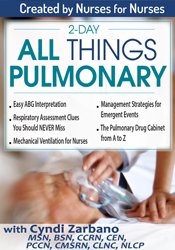


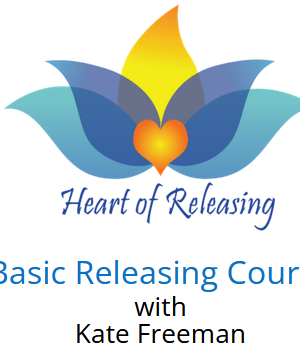

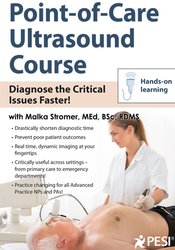


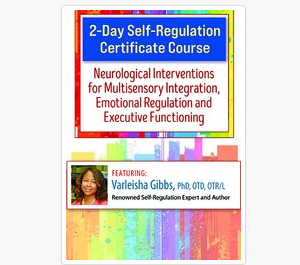
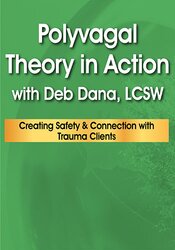
Reviews
There are no reviews yet.